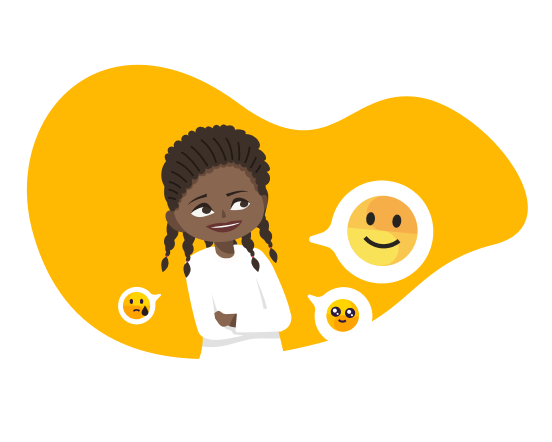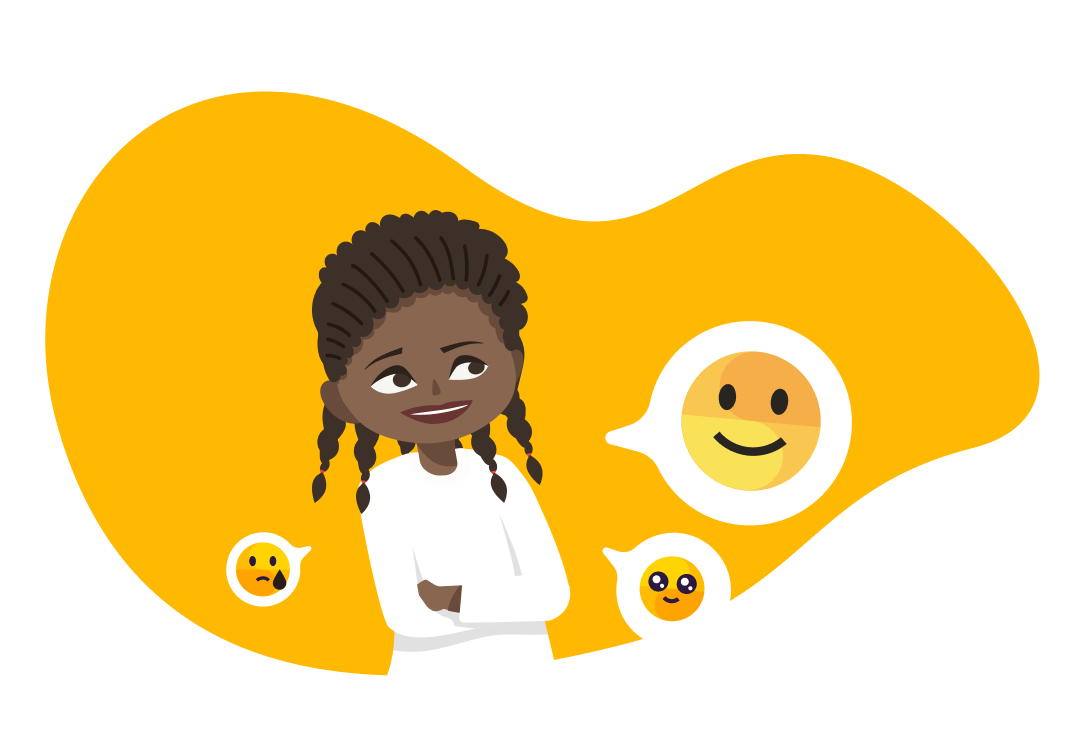
How to develop leadership skills in a child
Leaders are not born — they are made. Therefore, it is quite possible to develop leadership qualities in a child. But for parents, the path to their child’s success is often thorny. After all, children have their own character traits. They perceive the world around them in their own way. Therefore, it is extremely important to tell the child why he needs to be a leader and how he can master leadership qualities.
What does it mean to be a leader?
The term “leadership” refers to a person’s ability to influence other people and entire groups. A person uses this ability to achieve specific goals and only thanks to the available character traits.
In psychology, there are two types of leadership:
- Formal — involves direct management of other people. They have real power. Formal leaders are often very charismatic, have a good sense of humor, and feel comfortable in public. Often, but not always.
- Informal — involves the hidden management of people. Informal leaders are called “gray cardinals”. The main feature of this type of leadership is that people are managed from the outside. These people might have no formal power, but their level of influence is comparable to that of formal leaders.
Leaders do not use suppression and shouting techniques to influence other people. They are very sociable and know how to use words to persuade people to perform a particular action.
In a group, there are often formal and informal leaders. This can be a boss as an FL and a charismatics worker as an IF.
What skills and qualities does a leader need?

Leaders can have a wide variety of qualities. Let’s consider the most basic qualities that are important to develop in a child to grow up as a real leader.
Goal setting
If a person does not have goals that he strives to achieve, he is not able to correctly prioritize in life. At the same time, it is important not only to set a goal for yourself but also to consider the world around you as opportunities that can be used to achieve your goals. Therefore, the child should be taught to set short-term and long-term goals and, if necessary, help him to achieve them.
Motivation
Leaders know how to motivate other people to take certain actions. After setting goals, it is important to find the motivation to achieve them. To do this, you can use a system of rewards and punishments, which is well suited to implementing long-term goals.
Planning
Leaders know how to properly allocate their personal time, which they devote to the implementation of planned tasks. To master the quality of planning, parents can create a colorful schedule for their child. The schedule should clearly indicate the time that he will spend solving specific problems. In addition to managing your personal time, this quality will also help discipline your child.
Influence
The child needs to develop the ability to influence the behavior of other people through persuasion. But persuading does not mean manipulating. Therefore, a child needs to develop public speaking skills from an early age. Public speaking will help your child learn to speak correctly. As a result, he will learn to convey his thoughts, convince and influence other people.
Empathy
A child on the way to gain leadership qualities must be able to listen and hear the opinion of the team, understand the emotions, and feel the mood of each team member. This will help maintain a supportive team atmosphere.
Empathy can be developed through play, according to the rules of which the child will have to determine another child’s mood (for example, in a store, a park, on a playground). You may read more about teaching kids empathy in our article.
Team building
The child leader easily finds like-minded people, forms a team, and directs it to achieve the set goals. Maximilian Robespierre, a successful leader of the Great French Revolution, spoke about this as follows: “A leader has two important traits. First, he knows in which direction he needs to move. Secondly, he or she knows how to lead a group of people.”
You just have to take a look at your child’s behavior to understand how he behaves in a team and what methods he uses to achieve his desires.
Flexibility
In the process of achieving your goals, it is important to be able to look at what is happening around you from different angles. This quality allows you to feel the mood of the team when expressing your opinion and listen to the opinions of others. That is, the leader must be able to find and make compromises, but with the maximum benefit for himself.
Why are leadership qualities important?
Today your child is still very young. He learns the world around him, looking at his parents. But whether he will be a leader in the future who can easily overcome difficulties and lead thousands of people depends only on you.
Psychologists attribute only some leadership qualities to a genetic predisposition. Still, most of them are laid down in a child in early childhood. A child can have a quick reaction, great wit, and be sociable. But the lack of work on the development of these abilities will not allow him to develop in the right direction.
According to some psychologists, no more than 5% of people can become leaders. This suggests that some children do not lend themselves to education in this direction. However, this does not mean that the child will not become a leader in the future. The main thing that is required from parents is painstaking work to ensure that the child from early childhood is used to being in the spotlight, without lunch and days off.
Can a child be born as a leader?
In the beginning, we have already said that no. We still think so. Now we are going to tell why.
Leadership in the modern world is a very significant and important resource. It is not surprising that many parents strive to raise respected, strong, and successful people from their children. But this is not always possible.
You have to be completely naive that every little man can turn out to be Napoleon. Indeed, in this matter, innate characteristics are not the least important. Although many children already in kindergarten show leadership qualities. Some are the instigators of some events, and others are not afraid to take risks and start a fight on any occasion.

However, it is possible to develop the qualities of a leader. Even introverted children become the unspoken leaders in small groups. To do this, they use the skills of psychology, empathy, and well-developed emotional intelligence. Only in this case, it is important that the child does not begin to manipulate.
The child must understand that the family can protect him in any situation. But at the same time, you should not anticipate possible negative situations since even adults constantly learn from their mistakes.
How to develop leadership qualities in a child?
All parents can bring up leadership qualities in a child, just some of them do not even try. Let’s take a look at the most useful skills to develop in your child from an early age.
An example of parents being leaders
The best example for every child is the behavior of the parents. At the same time, concrete actions are an excellent indicator of leadership. Through this, children learn to be aware of what it means to influence others’ lives and take an active part in the team.
Compassion and social skills
Feeling vulnerable, being face to face with other people and their opinions is very scary for a child. But when parents teach their children to be social and communicative, share emotions, and deal with differences, it helps children achieve the desired results in adulthood.
Ability to negotiate
Leaders always know how to find a compromise. At the same time, it is important for children not to give categorical answers “yes” or “no”. It is necessary to teach the child the ability to make his own choices by negotiating with parents or other opponents.
Ability to make choices
At a very young age, children must be able to make the right decisions. It is important to teach your child to prioritize and choose the most valuable option from many others.
Practicing confident communication and encouraging work
Children are actively involved in work and household chores. As soon as the child grows up, he or she realizes that the work that you entrusted him as a child was not difficult at all. Therefore, already in adulthood, they will easily overcome any adversity.
Playing games in a group
This behavior strategy makes children feel needed and in charge. In the process of playing, it is much easier for children to perceive reality. In addition, in a playful way, the child learns to think strategically and live according to certain rules.
Ignoring difficult situations
When a child has difficulties, parents seek to intervene by offering their help. You don’t need to do this. The child should be allowed to independently overcome a difficult situation. If the child does not succeed, you can intervene and help your kid solve a difficult problem.
Fails are a part of adulthood
It is not always possible to win. Nevertheless, the child should be told that failure is not a complete fiasco. After all, what did not work out now can be easily done another time — the result will certainly be positive.
Give more independence to your child
When a child begins to make independent decisions in moments when his parents are not with him, it perfectly disciplines and allows him to feel his importance — his words are also worth attention.
Activities for the development of leadership skills in a child
Now let’s see how parents can train children’s leadership through games.
Game “Start”
Children are divided into several groups with the same number of participants. Each of the teams comes up with a name for themselves, and the host of the game offers conditions. For example, it can be the execution of a task. After setting the task, the presenter says “Start”. The team that completes the task more accurately and faster wins.
Playing with ropes
All participants in the game line up in a circle and hold on to one rope. Then the rope is tightened as tightly as possible. After that, the facilitator commands that all participants close their eyes and do not open them until they have completed the task. It can create a triangle or a square from the rope. Children can only open their eyes if they decide that the figure is correctly formed. If a child opens the eyes earlier, then he or she goes out of the game.
“Happy Birthday” game
All participants are invited to choose the guys who are most popular in the team. They can express their opinion verbally or by writing the last name and first name of the leader on a piece of paper. Then “birthday people” get the opportunity to invite no more than three guests to their birthday party. As a result, small groups of children are formed, in which there are already guys with leadership qualities.
Caterpillar
Children stand in a line, and each child passes his hand to his friend, who is in the back. With the other hand, participants should take the hand of the child who is in front. In this case, the whole group should move backward, continuing to hold hands.
The movement continues until the chain is destroyed. Children who will begin to express their opinion about who and how to behave to preserve the “caterpillar” are the team leaders.
Finally
Of course, parents need to instill leadership qualities in their children and from the earliest childhood. However, you need to understand that children take an example from the behavior of their parents.
Therefore, parents need to be a good example for their children. This will help the child in adult life achieve their goals, achieve success in life, climb the career ladder and make not very “popular” decisions sometimes. But most importantly, it will help the child manage the team and lead a huge number of people.

new engaging articles



